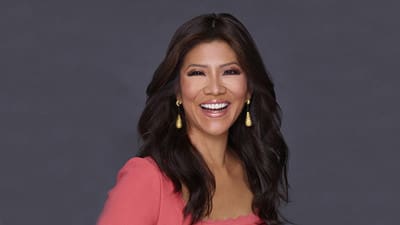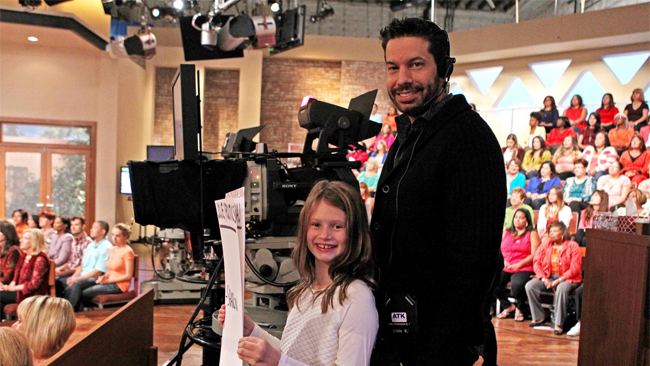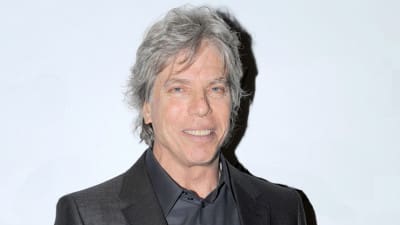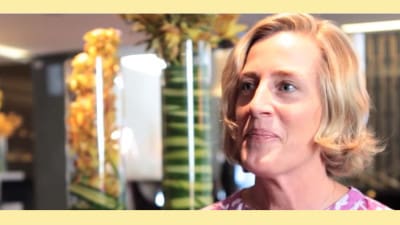It’s no easy feat to create a daytime talk show that consistently attracts viewers. Yet John Redmann, executive producer of CBS’s “The Talk,” has done just that for six seasons, with the help of creator, co-host and fellow EP Sara Gilbert, and her co-hosts Julie Chen, Sheryl Underwood, Aisha Tyler and Sharon Osbourne. Here, show moderator Chen, who admits she never set out to be a talk show host, and Redmann offer a bit of career insight for anyone aspiring to work in broadcasting.
Mediabistro: Julie, you’ve worn several hats in your career. What’s the difference between anchoring the news, being the co-host of a talk show and hosting a show like Big Brother?
Also on Mediabistro


Julie Chen: All three jobs are extremely different and require different skill sets. For anchoring the news, you must be impartial and never show your personal opinion or your own political slant. No editorializing allowed. Hosting “The Talk” requires showing your opinion on a topic, which is the exact opposite. And hosting Big Brother, you have to be fair and make judgment calls quickly during the live show competitions. It sounds frivolous, but it’s not because a bad call on my part could unfairly cost someone a half a million dollars.
MB: At what point did you know you’d achieved professional success?
JC: I knew I’d made it when I got a personal handwritten note from Connie Chung saying, don’t let the critics get you down. I was attacked for being a news person hosting Big Brother.
MB: Since you mention Connie, do you think there are enough inroads being made for Asian people in journalism or specifically on television?
JC: There have not been many obvious inroads made for Asians in any area. It was the unsaid inside joke amongst Asians that being Asian worked against us to get into Ivy League schools—because there were too many of us there. The Asian culture is not known historically for fighting openly and loudly for what we want. Good or bad, we are more of a pacifist culture. This is bad in one sense, because as the old adage goes, the squeaky wheel is the one that gets oiled.
That being said, I see a lot more Asians being represented on television. I like to think hard work, perseverance and changes in society are all reasons why we see many more people of all cultures represented today.
MB: What advice do you have for people just starting out in the broadcasting industry?
JC: My advice is to watch yourself [on screen] each and every day until you stop cringing. You’ll never be totally happy with your work, but if you stop cringing you’re probably as good as you can be and can self-regulate in the moment when you’re broadcasting.
MB: What mistakes have you learned in your career that you wish you could have done differently?
JC: I wouldn’t do anything over. All mistakes lead to good things so long as you learn from them and change!
MB: John, did you ever imagine “The Talk” would be as successful as it is?
John Redmann: Once the chemistry clicked, once we had the right five [hosts], I think then we knew it had a trajectory of success that you couldn’t stop.
MB: Outside of the celebrity stuff, what kinds of stories interest you enough to talk about on the show?
JR: We go more for celebrity and human-interest stories. We’re not too political, so if they’re non-celebrity stories, we make sure they are stories that everyone has an opinion on that lend themselves to a good discussion—whether it’s a viral video or it’s a new law or something that has happened in the school system. We look for topics that all viewers may be discussing in their own homes and with their friends. We’re an extension of those conversations. We are a part of their lives.
MB: Your job must require you to be constantly online. Ever unplug?
JR: I’m addicted to my phone. I’m always checking all of the news sites and celebrity stories to see what is going on and what’s the latest breaking news. I always think, ‘Oh, that will make a good topic.’ So I’m always connected!
MB: What’s the hardest part of your job as executive producer?
JR: The hardest part is getting the women to get into hair and makeup in the morning on time! They are very chatty about their lives, about the show topics and they naturally want to share their opinions with each other… so I find myself constantly saying, ‘Save it for the show!’
MB: And the most fulfilling part?
JR: I think at the end of the day, you want to entertain people and brighten their day and hopefully we have the right balance of humor and heart, mixed with some topical news… So you learn a little something, laugh and, we hope, have a great time.
MB: Was producing a talk show always a goal of yours?
JR: From a young age, I always wanted to do a talk show. Instead of watching cartoons, I was watching “The Phil Donahue Show” and “Sally Jessy Raphael” as a kid, so I knew I’d wind up doing talk shows. I knew I made it when I won my first Emmy working at “Rosie.”
MB: What advice do you have for people just starting out in production?
JR: No matter what you’re asked to do, do it well. Even a food order! Get it right, because that’s all that people have to judge you by. Even though you think you’re asked to do something that’s really mundane, you can still do it well and with a good energy.
MB: What mistakes have you learned in your career that you wish you could have done different?
JR: Don’t tolerate toxic people in your environment. And if you’re in charge of staffing a show, get rid of those types right away! Because you don’t want them to bring others down. It’s your job to set the appropriate tone in the workplace.



.png)







